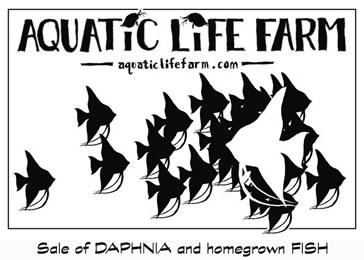so i finally got a chance to visit the forumn at work and i thought i would take the time to make a post with all the questions of stuff i should know but don't.
1. what does the sp. stand for in the fish names?
2. what is daphnia? i know its a live food but is it an insect cruestacean... etc?
3. What language is capitalcichlids.com? any idea why?
4. is being drilled out the only thing that makes a breeder tank a breeder tank or are there other things?
5. what does the L# in plecos stand for and why are they classified that way? (still looking for an L18 to buy btw)
6. is there any reason why generally fish here are referred to by there scientific names as opposed to their common names? (my guess is that it elimanates confusion)
anyway thanks in advance for helping me with my education. I wish i had some sort of prize to offer but times are hard and all my spare money goes to the fishes.
1. what does the sp. stand for in the fish names?
2. what is daphnia? i know its a live food but is it an insect cruestacean... etc?
3. What language is capitalcichlids.com? any idea why?
4. is being drilled out the only thing that makes a breeder tank a breeder tank or are there other things?
5. what does the L# in plecos stand for and why are they classified that way? (still looking for an L18 to buy btw)
6. is there any reason why generally fish here are referred to by there scientific names as opposed to their common names? (my guess is that it elimanates confusion)
anyway thanks in advance for helping me with my education. I wish i had some sort of prize to offer but times are hard and all my spare money goes to the fishes.




